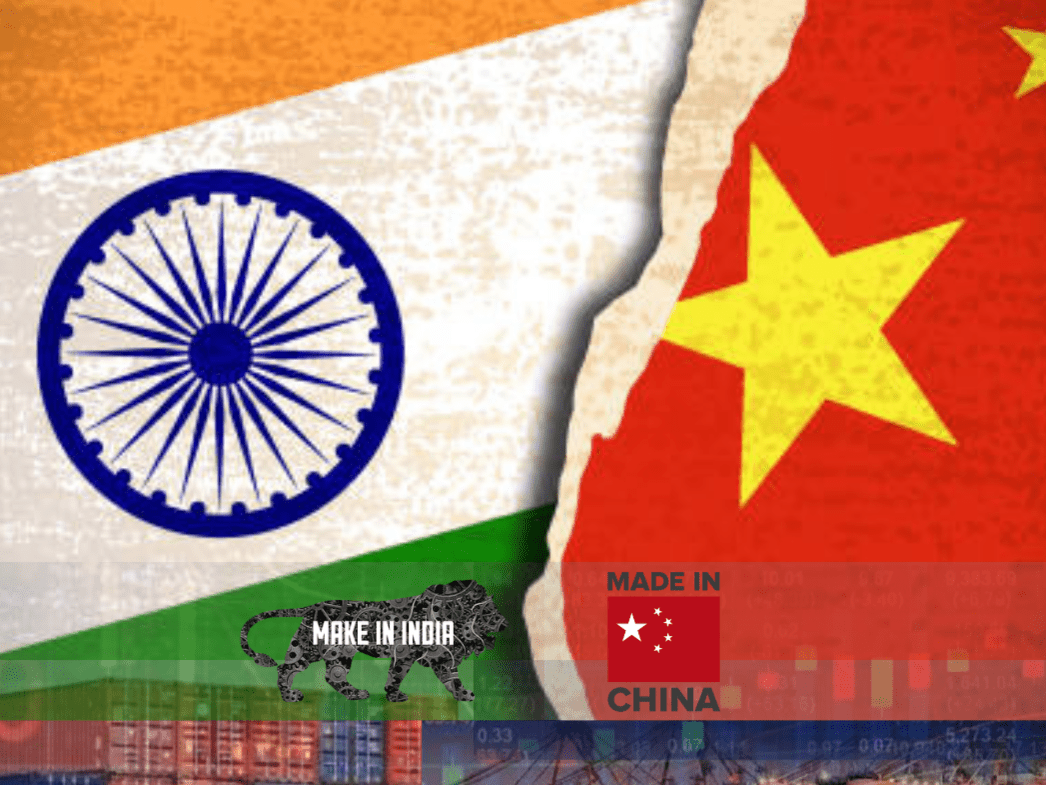There has been much rhetoric and noise in the media about reducing imports from China and other countries. Why? The positive arguments are made on the basis of reducing dependency on a rival state, reducing the trade deficit, improving self sufficiency and growing local industry to provide greater employment.
However there are three key reasons for not going down the 100% self sufficiency route.
1. Local industry can suffer economic consequences. Rising input costs result in higher finished goods cost. Example: APIs in pharmaceuticals.
2. Consumers will suffer the consequences of reduced competition and therefore live with higher priced inferior products. Example: Ambassador and Fiat, Solar panels
3. Economic ties promote peace.
India and China have never been on the friendliest of terms, stemming from the Sino-Indian border dispute that has caused clashes repeatedly, even as recently as 2022. There is a stark trade deficit between India and China. Of the $117bn in goods that flowed between the two countries in 2022, 87% were imports into India from China. Furthermore, while India’s exports to China consisted of lower value goods such as cotton, granite and diamonds, China’s exports to India are higher value memory chips, integrated circuits and pharmaceutical ingredients. So why cannot India, despite its issues with China and a massive trade deficit, cut imports?

In 2014, India’s prime minister, Narendra Modi launched the “Made in India” campaign, and raised tariffs significantly, averaging at around 18% (Source: The Economist). The idea behind the movement had good intentions. Reducing reliance on Chinese imports could invigorate India’s economy by creating jobs and fostering growth. Domestic industries, spurred by decreased competition, could generate employment and stimulate related sectors. This shift is aimed at enhancing self-sufficiency, reducing vulnerability to global disruptions, and encouraging innovation, positioning India competitively in the global arena. However, imports from China have continued to rise inexorably. Further, it may be unwise of India to stop all imports from China. There are four main reasons for having a more nuanced import policy and continuing imports.
First, on India’s journey to “self sufficiency” they might be unconsciously hurting domestic firms that export. The common belief is that cheap Chinese imports crush local markets and while that may be true in certain industries like the textile industry, many Indian firms also rely on these imports as part of their production process. For example, the pharmaceutical industry exports pharmaceuticals worth over $24.5 billion every year (Source: Deccan Chronicle) and relies on China for 70% of its Active Pharmaceutical Ingredients (APIs) imports. Without access to these APIs, our pharma industry will lose out on exports. Moreover, disrupting these supply chains might cause delays, increased costs, and potential shortages, ultimately affecting the overall performance of these industries.
Second, banning imports could result in consumers ending up either with poor quality products or paying for more expensive products. While banning imports may initially seem advantageous, it can lead to complacency, inefficiency and a disincentive to spend on research and development. For example, when India had a ban on car imports and the licence raj was in place in the 1980s, customers had access only to two cars, Fiat and Ambassador. The waiting time to get these cars reportedly could run into months, if not years. Once the market was liberalised, both these car companies died a gradual death, but the customer’s choice of cars has exploded to hundreds and for most cars there is no waiting time to buy them anymore. Another example is Solar panels imports into India where as much as 80% of component supplies come from China. India started levying a customs duty of 40 per cent on solar modules and 25 per cent on solar cells from April 2022. This has resulted in the solar panel prices increasing for the end customer in India by 35% (Source: The Economic Times).
In addition, solar companies such as ReNew Power, Adani Green, SB Energy, Avaada, Azure, Acme, O2 Power and Greenko faced disruptions to project timelines apart from the increasing cost. This resulted in India missing its solar power target of 100 GW of installed solar capacity by 2022 by approximately 30% and is a blow to the sustainability agenda as well (Source: The Economic Times).
Third, trade agreements can help foster peace when tensions between India and China flare up. Nations that trade with each other do not go for war. The European Union (EU) is a prime example of how trade agreements can promote lasting peace. Emerging after World War II, the EU began as the European Coal and Steel Community (ECSC) in 1951, integrating crucial industries. By intertwining their economic interests, nations created a strong incentive for peace, making a cooperative Europe indispensable for prosperity. (Source: European Union)
In summary, despite the geopolitical complexities and tensions, the importance of trade cannot be overstated and completely banning Chinese imports is not possible nor desirable. Trade forms the bedrock of economic growth, technological advancement, and peaceful coexistence among nations. As India grapples with its relationship with China, finding a balance that ensures economic prosperity through trade while safeguarding selected domestic interests is paramount.
Shivi Vikram – AS Level – CS International
Cover Illustration – Nikilan Arunachalam – Grade 11 – CS Academy


